Mar 4, 2021 | Alumni, Education, News
Baker receives $1 million grant from the National Science Foundation

Baker University recently received a $1 million Robert Noyce Teacher Scholarship Grant from the National Science Foundation to recruit and prepare science, technology, engineering, and mathematics (STEM) majors to become secondary teachers in high-need school districts.
“I am so proud of the faculty members who recognized this opportunity and prepared the proposal for this grant,” said Lynne Murray, President of Baker University. “The need for scientists, inventors, and researchers is great, and this project will help Baker University train excellent STEM teachers, who will inspire the next generation of innovators to develop solutions to some of our biggest challenges.”
Through the Astra Program, Baker will support 24 Noyce Scholars over the next five years. A scholarship award of $11,000 per scholar during their junior and senior years will eliminate the likelihood that these students will need to take out student loans and reduce or eliminate the need for outside employment during those demanding years of the program.
Key to the program is a strong support system, including mentoring that continues into the Noyce Scholar’s first year of teaching. Each student is assigned two Baker faculty advisors: one based in the STEM department and the other in the School of Education. The program also addresses interview skills, grant writing, leading a STEM club, managing workplace stress, and conducting field research at the Baker University Wetlands. Astra graduates will be provided support to attend local, state, and national meetings to facilitate networking and continue to learn STEM best practices.
Candidates will earn a double major in a STEM field and in secondary education. Noyce Scholars will complete community service through Baker Wetlands community outreach and educational programs by helping to organize and offer educational programming such as demonstrations and tours to secondary school students and through family-oriented education days, youth summer camps, and field trip experiences.
“Grant funds will also be used for research into the causes of attrition among early career STEM teachers so that strategies can be developed to increase STEM teacher retention,” said Dr. Charlsie Prosser, associate professor of education, chair of the Education Department, and project leader for the Astra Program.
The project will contribute knowledge on best practices for preparing STEM teachers and fill a gap in the literature about elements affecting the retention of STEM teachers in rural and urban classrooms. Through the Astra Program, Baker will establish partnerships with the Grandview C-4 School District in Missouri and Topeka Public schools and Baldwin City USD 348 in Kansas. Noyce Scholars will be expected to complete student teaching in one of these districts.
“A huge piece is a collaborative effort between the partner school districts and Baker University,” Prosser said. “We have the opportunity to work closely and focus on STEM education in both urban and rural districts and the uniqueness that comes from teaching in both communities. We will compare the causes of workplace stress in urban and rural school districts and identify the unmet needs of early teachers in both areas.”
Other Baker faculty who will serve as project leaders are Dr. Amy Wintermantel, associate professor of education; Dr. Erin Morris, professor of biology and chair of the Department of Biology and Chemistry; Dr. Jamin Perry, assistant professor of chemistry; and Molly Anderson, assistant professor of laboratory instruction.
Each partner district will recruit teachers to serve as mentors for Baker’s Noyce Scholars, and Baker project leaders will present on STEM teaching and pedagogy content based on topic requests from the districts.
“This will provide a personalized experience for all,” Prosser said.
The first cohort of Noyce Scholars will begin the program next fall.
